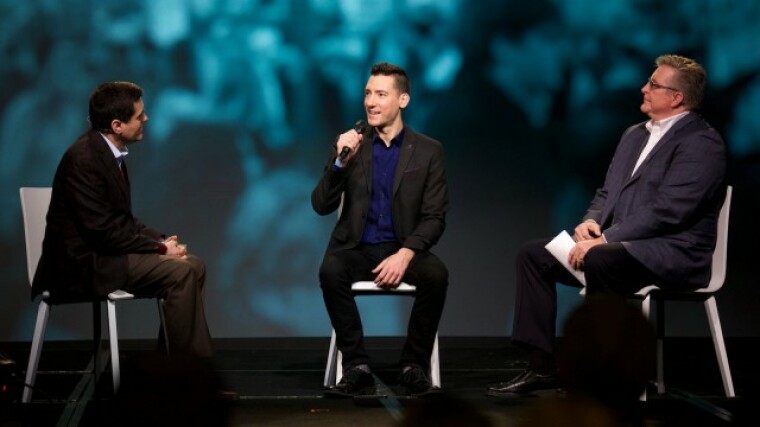Pastors urge DA in Planned Parenthood video case to dismiss charges

HOUSTON (Christian Examiner) – A group of Houston area pastors is challenging the legitimacy of the grand jury indictment of two anti-abortion activists handed down earlier this week.
A spokesman for the Houston Area Pastor Council said in a emailed statement Jan. 28 that hundreds of pastors making up the ethnically- and denominationally-diverse council throughout the city had reviewed the indictments of investigative journalists David Daleiden and Sandra Merritt of the Center for Medical Progress and were "profoundly disturbed" at the district attorney's presentation of the case.
"We highly respect the nature and process of our justice system when it works justly; however, often it falls prey to the private agendas and philosophies of individuals and we are very disturbed by the appearance of that in this case. To spin an investigation around one hundred eighty degrees from scrutinizing Planned Parenthood's documented trafficking of baby body parts to 'shooting the messenger' is breathtaking," Rev. Dave Welch, who represents the council, said.
Initially, the pastors objected to the fact that a Planned Parenthood board member (Lauren Reeder) was working in the district attorney's office. That employee had no role in the grand jury proceedings.
"District Attorney Devon Anderson personally assured me at the beginning of the investigation into Planned Parenthood regarding the trafficking of human body parts that the assistant DA who is on the board of Planned Parenthood would be 'walled off' and have no role in the investigation," Welch said. "I am confident that DA Anderson made good on that promise: however, the results raise serious questions."
Daleiden and Merritt were both charged with tampering with a government record, a felony, and Daleiden was also charged with attempting to buy a human organ for $1,600 per sample. The pastors argue that Daleiden never intended to actually procure human organs, but only to illustrate Planned Parenthood's willingness to sell them for profit. Daleiden has since defended using deception to expose the trafficking of human organs by Planned Parenthood.
"No rational person unless misinformed or misled would claim that it was the intent of pro-life journalists David Daleiden and Sandra Merritt doing investigative reporting to 'knowingly or intentionally offer(s) to buy, offers to sell, acquires, receives, sells, or otherwise transfers any human organ for valuable consideration,'" Welch said in the statement.
According to Anderson, however, the pastors have it wrong.
"The inconvenient truth of a criminal investigation is that it doesn't always lead where you want to go," Anderson, who said she was pro-life, claimed in a video after the indictments.
Anderson noted that Daleiden's attorney's had already asked for the case to be presented to a new grand jury or dropped altogether, but she objected. She said her office has "a long standing policy against grand jury shopping. That means when a grand jury comes back with a decision we don't like we don't go and find another one to get the result we want."
Anderson said the decision belonged to the impaneled grand jury and it was theirs to make.
"The two defendants are represented by counsel and will have their day in court," she said.
Welch also called on Anderson to dismiss the trafficking charges as a clear misapplication of the law.
"District Attorney Anderson has the prosecutorial discretion to assure that if and when a grand jury errs she properly applies the law and declines to prosecute. They did err and we ask and expect her to dismiss," Welch said.
While Anderson has declined to discuss the dismissal of the charges publicly, another official in her office seemed to float the idea that dismissal could be a real possibility – but only if new evidence surfaces.
Jeff McShan, the spokesman for the district attorney told the New York Times, "Sometimes justice is served by dismissing cases."
New evidence being brought to light is exactly what Daleiden is hoping for. He has petitioned the U.S. Supreme Court to review information a state judge previously blocked from release to determine if it can be used in a separate defense of Texas's controversial abortion law.
In 2013, the state adopted new policies that required abortion clinic doctors to have admitting privileges at local hospitals and the clinics themselves to meet the same requirements placed on "ambulatory surgical centers" – outpatient clinics. Most of the abortion clinics in Texas have closed as a result.
More than 92,000 people have signed a petition asking Anderson to drop the charges against Daleiden.